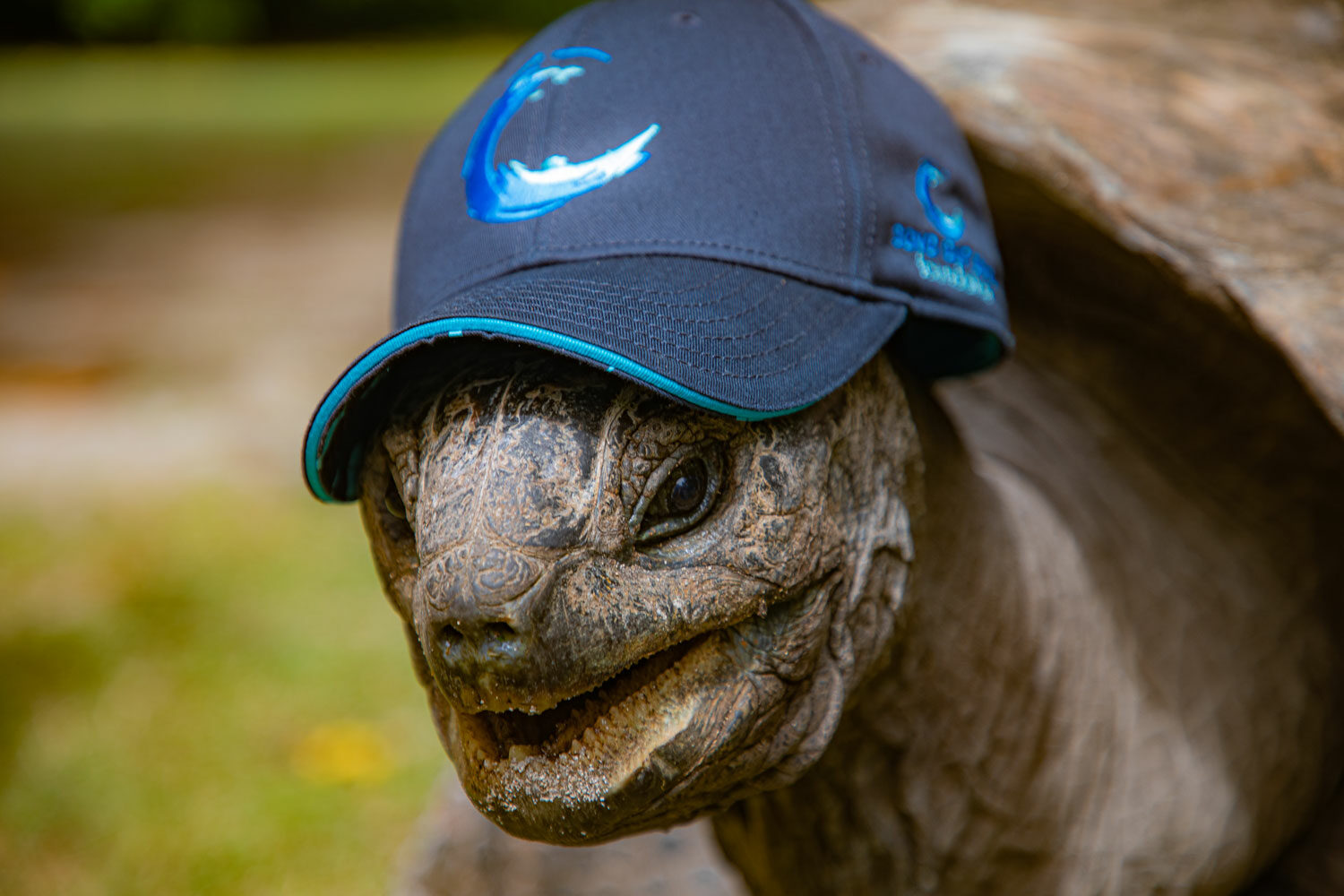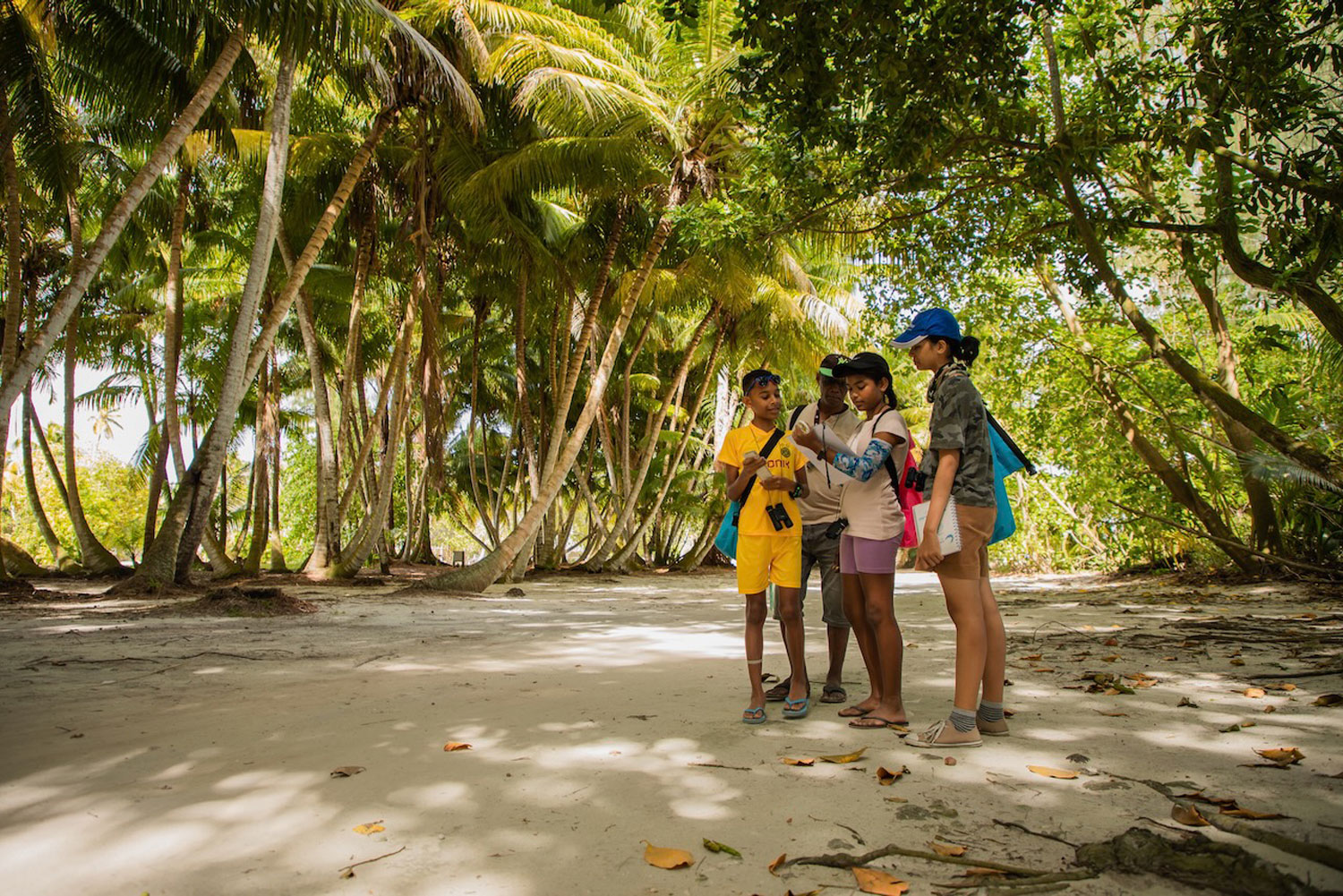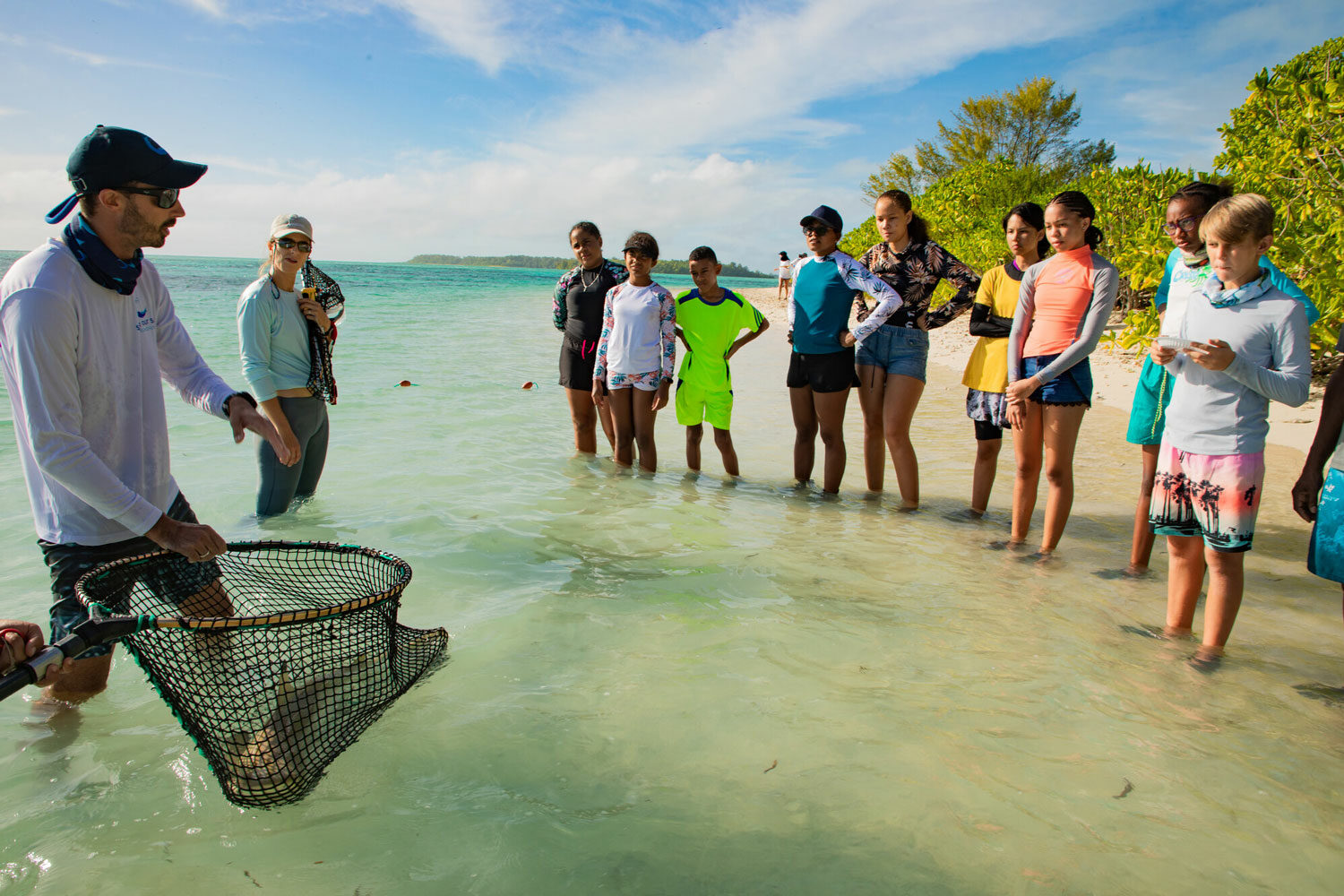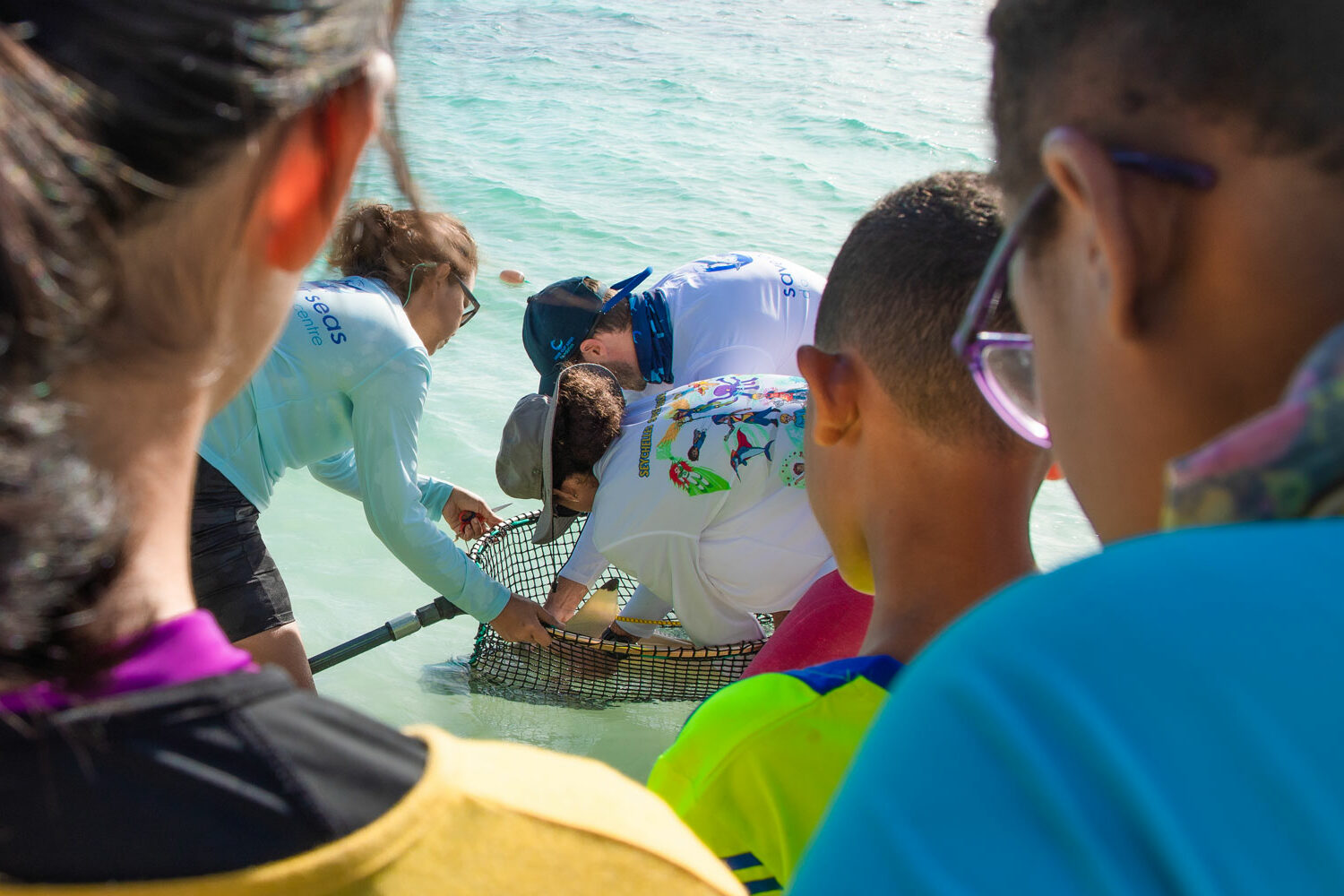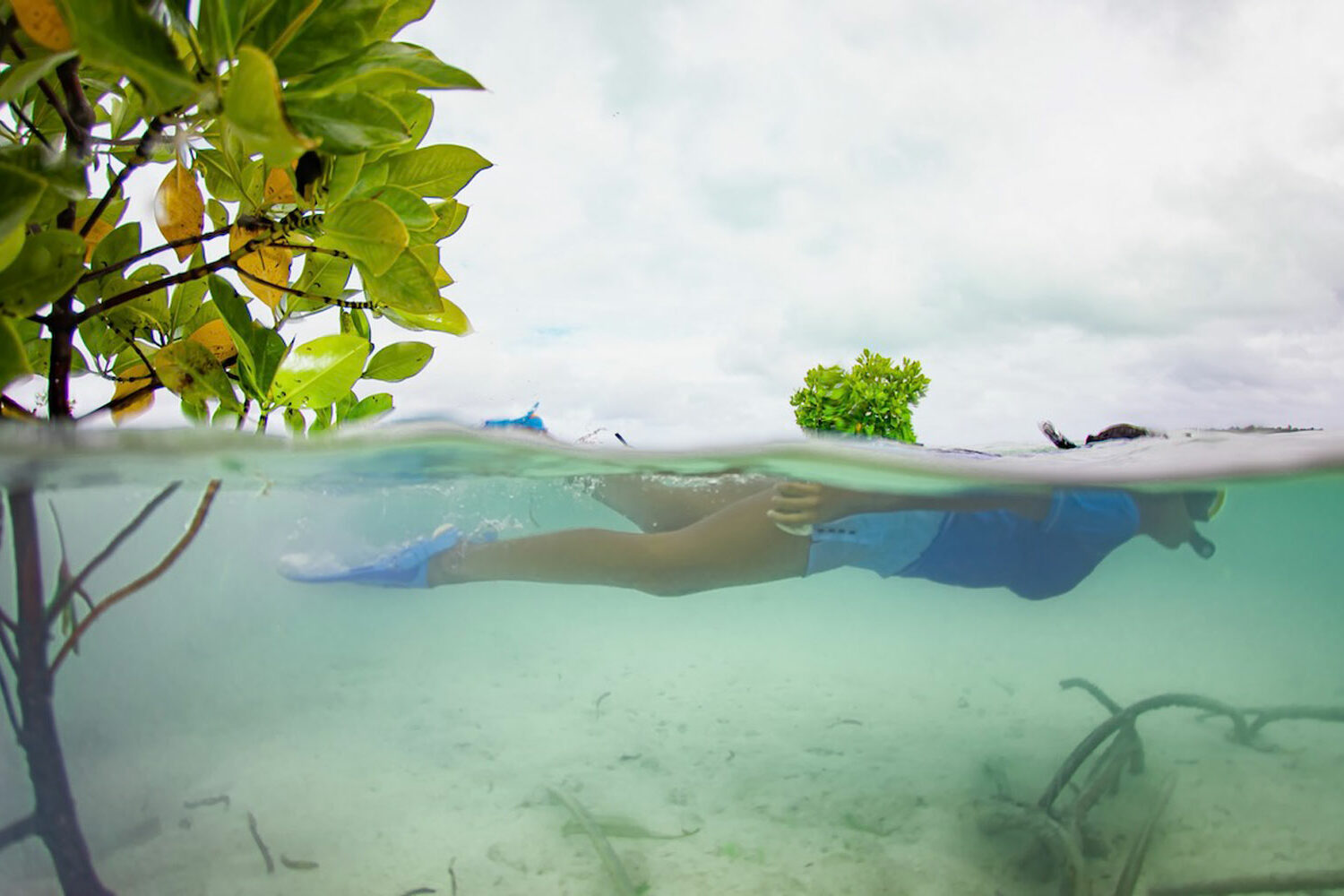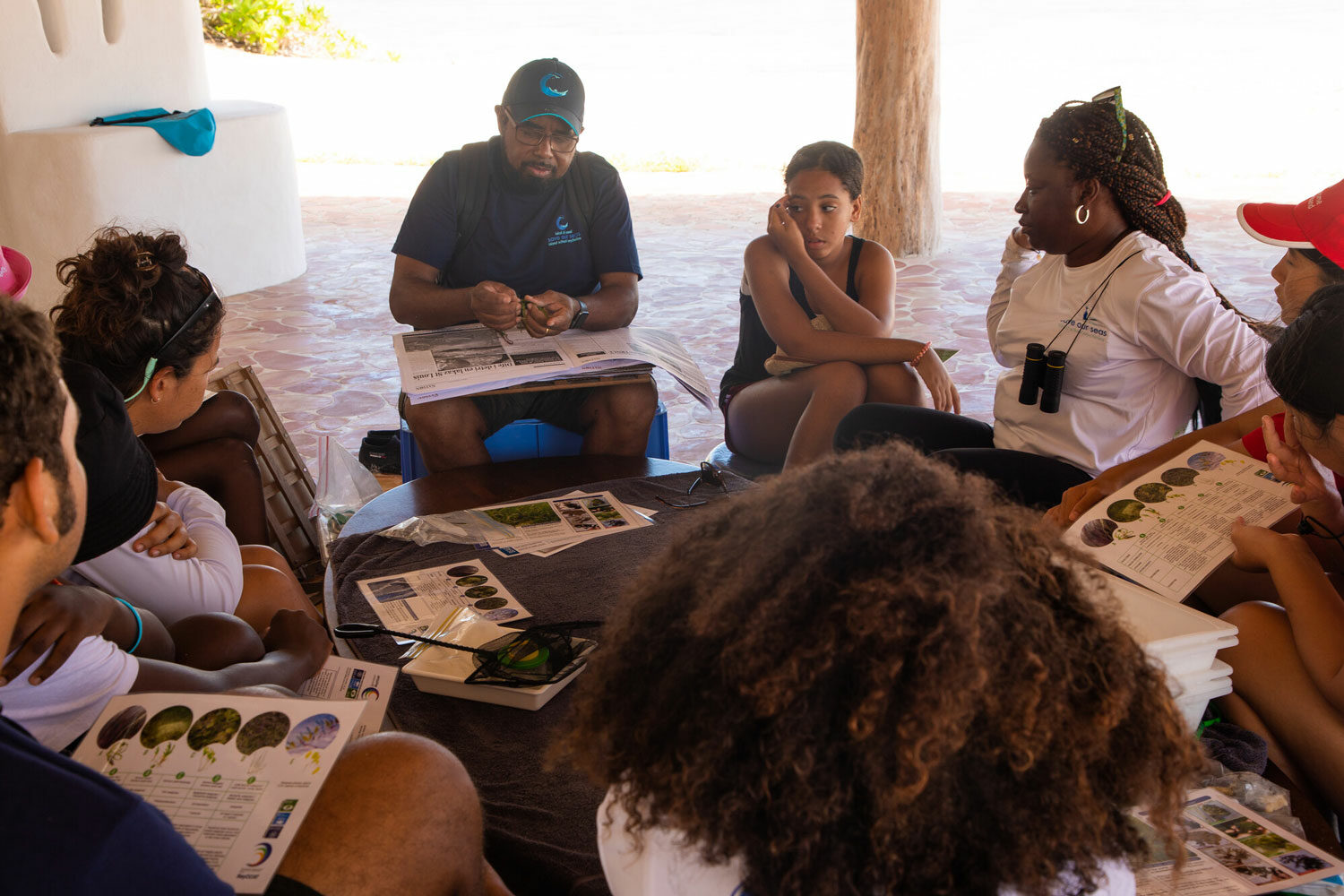Seeing is believing: the D’Arros Experience 2022
Before action, comes caring. It’s an adage we know well: that we cannot expect anyone to foster custodianship of the environment without any experience of it. For children, it seems particularly important to ensure that their access to nature is full of wonder, emotion, and adventure before it comes with a sense of responsibility for the environmental issues they will inherit. And it’s an idea that American writer and biologist Rachel Carson puts forward with clarity in her book The Sense of Wonder. Her words are as pertinent now as they were when first published in 1984. Indeed, perhaps even more so, when we consider the rarity of true access to nature experiences for many children today. So, there is something telling in the giddy language of Adelle, a participant in the D’Arros Experience kids camp, when she enthuses: ‘It was an amazing experience, an unforgettable one, the best week of my life.’
A snorkelling trip around D'Arros Island could mean meeting a manta ray, or simply marvelling at the freedom the ocean brings. Photo by Dillys Pouponeau | © Save Our Seas Foundation
Adelle was one of 15 Seychellois candidates selected to participate in the D’Arros Experience hosted by the Save Our Seas Foundation at its D’Arros Research Centre (SOSF-DRC) in August 2022. Young school learners across the island nation had submitted their ocean superhero-inspired art, all vying for the opportunity to fly out to the remote island in Seychelles’ Outer Banks to attend one of two week-long camps. The successful applicants each participated in a programme designed to inspire a new generation of Seychellois ocean champions. The D’Arros Experience 2022 ran over a two-week period from 8 – 22 August 2022. The first week saw the arrival of seven winners between the ages of 12 – 15 years, together with two teachers. The second week brought eight students ranging in age from 10 – 14 years. The programme was jam-packed with presentations about ecosystems and endangered species, field excursions and snorkelling trips, as well as conservation efforts such as beach clean-ups. ‘The intention behind the camps is to inspire children to become wise custodians of the marine world and ambassadors for the natural realm of Seychelles’, explains Terence Vel. Terence, who works in an office at the University of Seychelles and represents Island School Seychelles, emphasises the value of this near-pristine wilderness: ‘D’Arros and St Joseph Atoll are a living laboratory for naturalists. It is a privilege for young people to have such a special place to experience marine and terrestrial ecosystems.’
Group A with SOSF and SOSF-DRC staff on the beach at D'Arros. Photo © Sebastian Staines
D’Arros Island and its neighbouring St Joseph Atoll form part of the chain of islands known as the Amirantes Group. The area is one of incredible ocean riches: one of the country’s largest nesting grounds for endangered hawksbill and green turtles, the only known cleaning station for manta rays and nursery grounds for sicklefin lemon and blacktip reef sharks are some highlights. The Save our Seas Foundation D’Arros Research Centre (SOSF-DRC) has been in operation for 10 years, conducting monitoring and conservation research to keep tabs on this phenomenal marine biodiversity. ‘My favourite encounter was the shark,’ says Najmia, another participant. ‘Seeing sharks for the first time in person was very exciting.’ Her fellow participant, Alizee, confirms: ‘My experience here on D’Arros was really fun, educational, and entertaining. I got to see some things you wouldn’t normally see on Mahé or in my life. I think this experience will be irreplaceable.’ As a research officer at the SOSF-DRC, Dillys Pouponeau is aware of how remarkable a wilderness experience this is for most Seychellois children. ‘Gaining access to such a rare environment really is a privilege, an experience of a lifetime’, she explains. ‘I think this is an excellent opportunity for the children to learn through exposure to one of the best environments here; it makes learning more enjoyable and hence more successful.’ However, Dillys also knows that experience is the first step towards education.
Snorkeling over the rich coral reef of D'Arros Island. Photo by Dillys Pouponeau | © Save Our Seas Foundation
Richard Louv, in his book Last Child in the Woods: saving our children from nature-deficit disorder says:
D’Arros Island is certainly remote in its geography: it lies roughly 255 kilometres (160 miles) south-west of the archipelago’s largest island, Mahé. But it has very real meaning for the future sustainability of the lives of Seychelles’ citizens. So how to overcome this hurdle and impress on a new generation the importance of protecting such a place? ‘Engage the children in hands-on activities’, is Terence’s immediate and emphatic reply. ‘The students have a fantastic opportunity to go on the D’Arros camping expeditions, especially encountering a unique habitat that is subject to very little human interference. Here, they swim with animals like sharks and rays that they would rarely get a chance to see in their daily life. Experiencing these creatures and habitats in real life has a much more significant impact on the students than reading about them in books or being told about them in the classroom presentation’. Terence explains that a sense of exploration was balanced with messaging about our responsibility for the environment: ‘As they visited different habitats, students were asked to think about the best ways to help protect these unique places and work together to ensure that future generations can enjoy a marine and terrestrial environment that is just as diverse and beautiful as it is today!’
‘Every child needs nature. Not just with parents who appreciate nature. Not only those of a certain economic class or culture or set of abilities. Every child.’ Once again, Richard Louv’s writing points to a key facet of the D’Arros Experience: the potential to positively impact children in the manner they might need it most. The programme was transformative in different ways for each child. For Alana, it was about gaining confidence: ‘At first, I did not want to go to the ocean at all; this has made me realise that there is nothing to be afraid of in the ocean’. Her fellow participant Ellie felt emboldened to try new activities: ‘This camp has changed me by knowing how to face my fears. I was really scared of sharks, but now that I have actually been able to swim with them, I am not that scared of them anymore!’ These progressions were heartening for the SOSF-DRC staff facilitating the camp. ‘It was amazing to see the positive engagements across the two age groups every day’, says Ellie Moulinie, a research officer at the SOSF-DRC. ‘Every day was a new learning experience where the kids were always ready to get stuck-in’. Her fellow research officer, Dillys Pouponeau agrees: ‘It was amazing to get feedback from students who were terrified about the ocean, and now they are able to enjoy the ocean without fear after understanding that the terrors are mostly based on speculations’.
Hands-on activities - such as collecting marine debris - to understand our impact on the ocean, can be an eye-opening experience. Photo by Dillys Pouponeau | © Save Our Seas Foundation
But a key outcome of the camp was to instil a sense of custodianship in the learners. Programme Director Henriette Grimmel explains: ‘Education is one of the foci of the research centre because research should translate into action. Part of that action is for current and future generations in Seychelles to understand their marine heritage. Seychelles is investing in building local capacity for researchers, conservationists, and policymakers to be sourced from within the country. Children play an important role in becoming this national pool of human resources for the blue future of this country’. And it appears that some budding scientists have emerged from the group. Tuvia spoke about his vision for the future: ‘I really want to be a marine biologist now. I think the ocean is doing pretty good, but with all the negative impacts, I don’t think the ocean is going to be too good unless there are more people who study and understand the ocean and how to help it.’
‘I think the ocean has a balanced future, dark or bright, depending on how we are shaping it now’, says participant Alizee. Her conclusion speaks right to the heart of what passion the D’Arros Experience was designed to unlock: ‘I would vow to do anything in my power to protect the ocean.’

